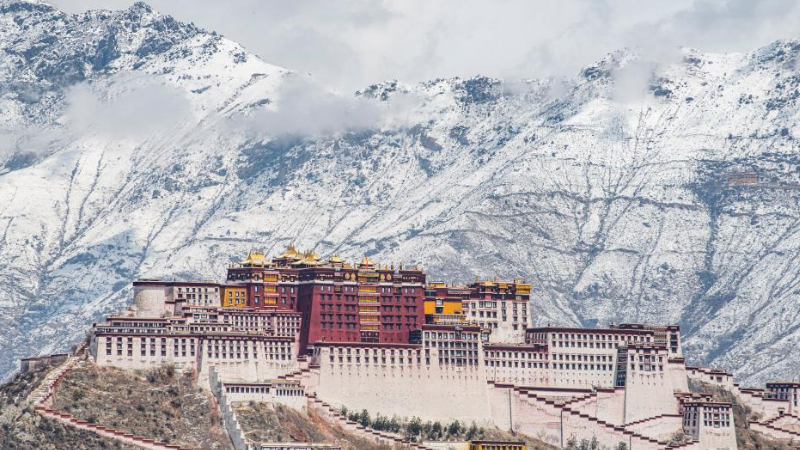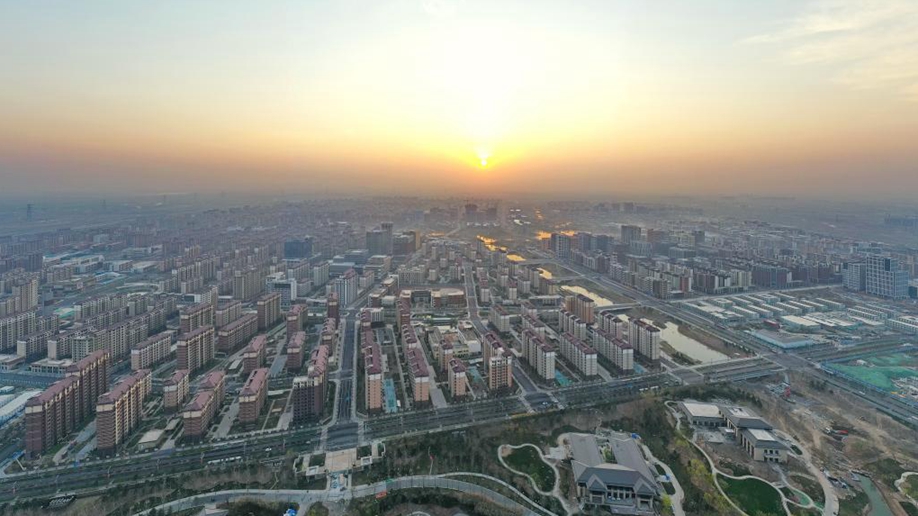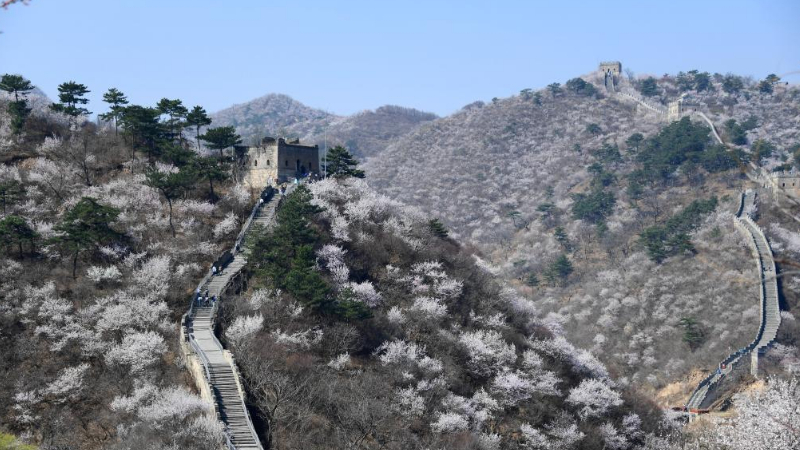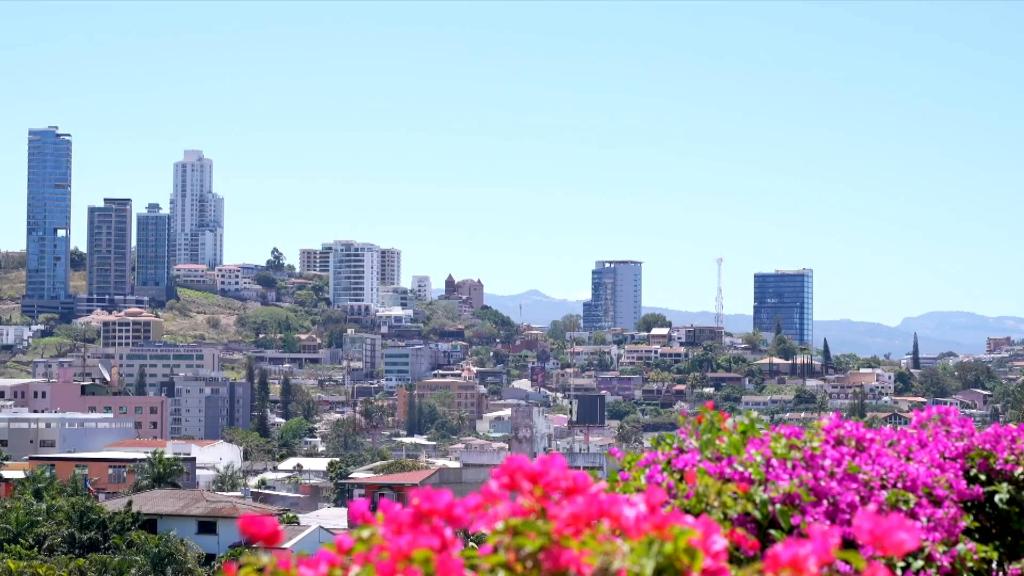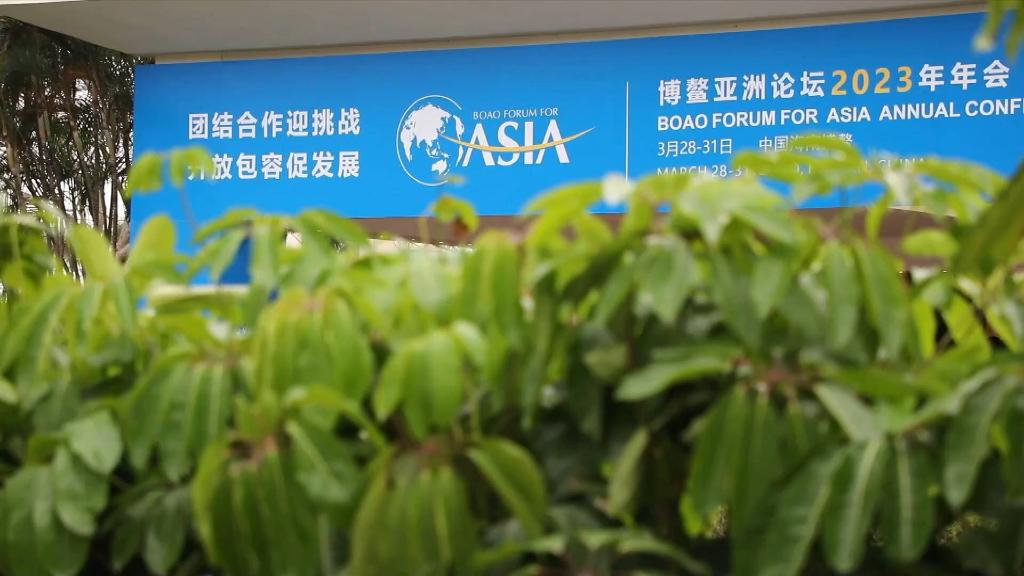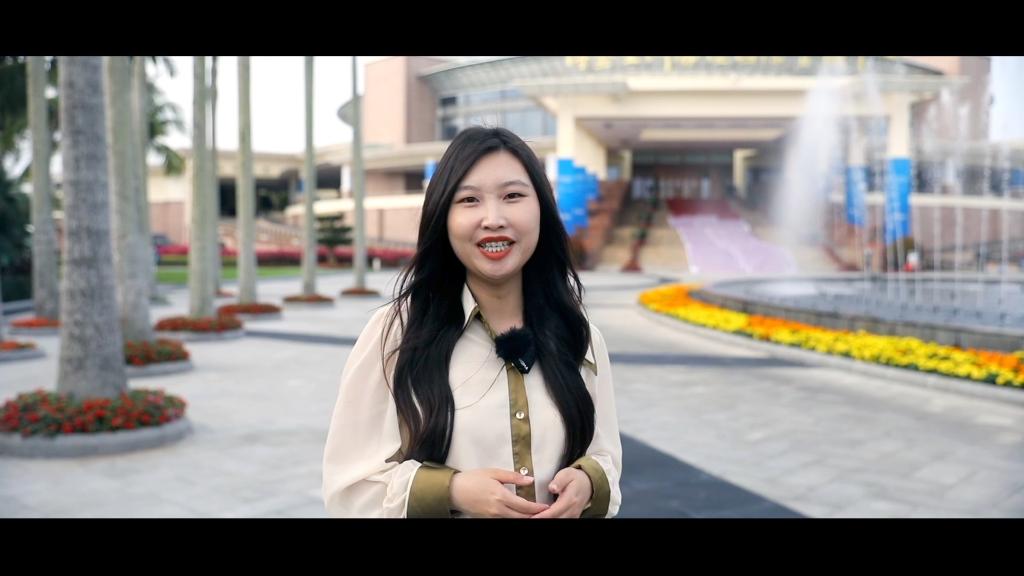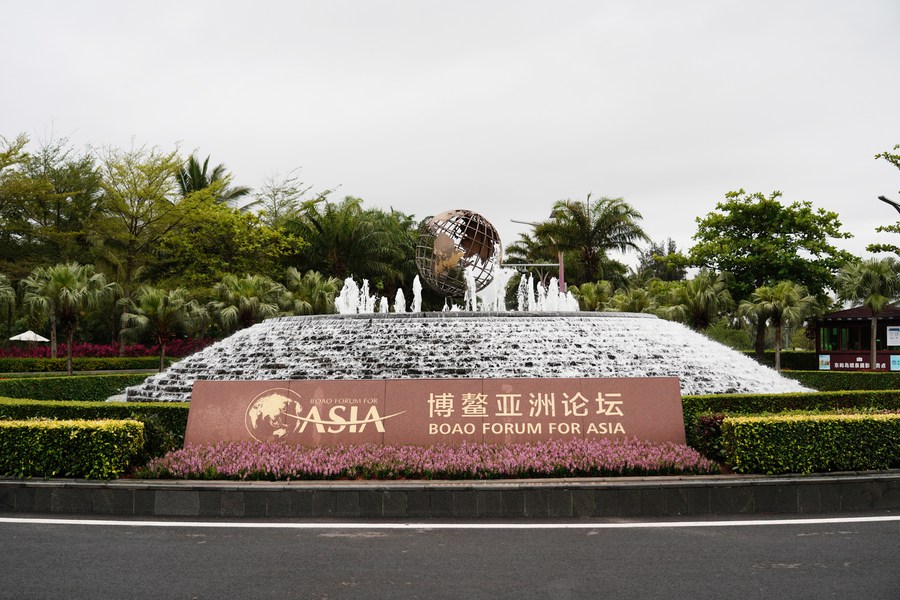
This photo taken on March 27, 2023 shows a fountain square in front of the Boao Forum for Asia (BFA) International Conference Center in Boao, south China's Hainan Province. (Xinhua/Fan Yuqing)
Facing the complex and grim international situation, Asian countries should keep their faith and forge forward by adhering to a UN-based international order and a WTO-centered global trade system, rather than being cajoled into a side-taking dilemma. The huge, sustainable dividends of regional integration and economic globalization should not be squandered.
by Xinhua writer Ma Qian
BOAO, Hainan, March 31 (Xinhua) -- As global policymakers and business leaders gathered at the Boao Forum for Asia (BFA) Annual Conference this week, many found themselves in a fragmented, uncertain world amid a Gordian knot of challenges, including geopolitical rifts, trade restrictions and cost-of-living crises.
In particular, policies such as financial sanctions and economic decoupling, as well as a prolonged slowdown in trade reform, have bedevilled globalization, which the International Monetary Fund (IMF) said "helped catalyze catch-up in per capita incomes across countries and a large reduction in global poverty."
That would be a dangerous slippery slope towards runaway "geoeconomic fragmentation," a term the IMF used in a January report to caution against a policy-driven reversal of global economic integration, which is a multidimensional process that would leave everyone poorer and less secure.
As a platform for open discussions and inspiring ideas to promote regional integration and global development, the BFA offers the outside world a chance to witness Asia's sustained regional integration, as well as its resolve to propel economic globalization.
Against the backdrop of a global economic slowdown and the risk of an increasing fragmentation of globalization, Asia stands out as "a bright spot in the bleak global economic landscape," and global economic governance enters into the "Asian moment" this year, according to the BFA's latest report titled "Asian Economic Outlook and Integration Progress."
Regional economic integration in Asia has been advancing, with trade dependence between regional economies standing at a relatively high level and the Association of Southeast Asian Nations (ASEAN) and China remaining as hubs for trade and manufacturing.
With two of the world's leading free trade agreements -- the Regional Comprehensive Economic Partnership (RCEP) and the Comprehensive and Progressive Agreement for Trans-Pacific Partnership (CPTPP), Asia demonstrates its firm commitments to the free flow of goods and services across the world, which has underpinned economic globalization.
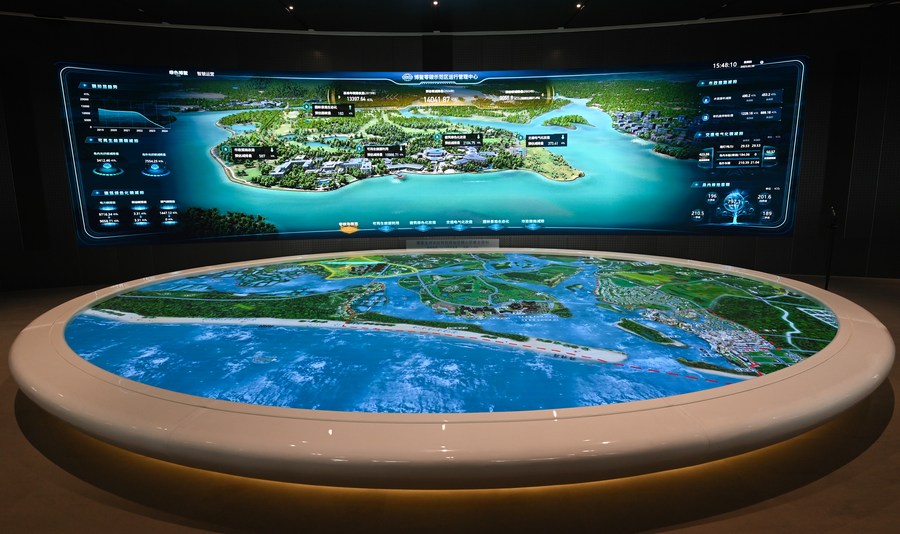
This photo taken on March 30, 2023 shows the management center of a zero-carbon demonstration zone in Boao, south China's Hainan Province. (Xinhua/Yang Guanyu)
Due to the once-in-a-century COVID-19 pandemic, it is all the more imperative for the world to achieve a balanced and inclusive development that leaves no country behind, so as to put humankind's shared future on a much more solid and sustainable footing.
With the RCEP coming into force in 2022, Asia has embraced huge institutional and opening-up dividends. The RCEP, to date the world's largest free trade agreement with 15 signatory countries, has enriched the rules-based free trade system and also serves as an important benchmark for the consolidation of economic integration.
Called "a groundbreaking step toward lowering trade barriers in Asia," the RCEP links up member countries' strengths in goods and services, technology and manufacturing, removes restrictive trade practices and tariffs, as well as further cements the industrial and value chains in the region, so as to increasingly integrate Southeast Asia's economy with that of East Asia and the Pacific.
More significantly, it offers an open and fair framework for calibrating regional and global trade rules and order, through which participating countries get a chance to find new cooperation breakthroughs and further contemplate how to better employ the free trade mechanism from a pragmatic perspective.
That will be conducive to the upgrading of related policy measures on a national level and ultimately benefit more markets around the world, given the economic scale and population size of the RCEP.
Therefore, the RCEP is expected to become "a new center of gravity for global trade" in the long term, as it has served as "a catalyst for regional economic recovery in the post-pandemic era," said Ky Sereyvath, director-general of the Institute of China Studies at the Royal Academy of Cambodia.
As Zhou Xiaochuan, BFA vice chairman and former governor of China's central bank, once put it, "Asia has provided the world with a new model for yielding institutional dividends from upgraded free trade agreements, boosting and supporting a new round of economic globalization."
Masahiro Morinaga, chief delegate of the Japan External Trade Organization's Chengdu office, agreed, saying the emergence of the RCEP provides a reference for the world in building free trade agreements at a higher level, wider scope and unified rules in the future.
In 2021, China formally submitted its applications to join the CPTPP and the Digital Economy Partnership Agreement, reflecting China's determination to achieve a higher level of institutional openness to the world.
"China has played and will continue to play a vital role in promoting free trade, multilateralism and globalization, which are essential to building a just, equitable, open and inclusive world," said Kin Phea, director general of the International Relations Institute of Cambodia, an arm of the Royal Academy of Cambodia, adding China-ASEAN cooperation has made Asia the most dynamic region in the world.
With ASEAN and China as the regional center of gravity, intra-regional ties and Asia's bond with the outside world remain strong and resilient. Yet it is quite alarming that Asia is confronting the specter of the Cold War and the risk of greater division.
The attempt by extra-regional forces has never stopped to form small, exclusive blocs, with an aim to provoke decoupling and confrontation that undermines the long-term interests of regional countries.
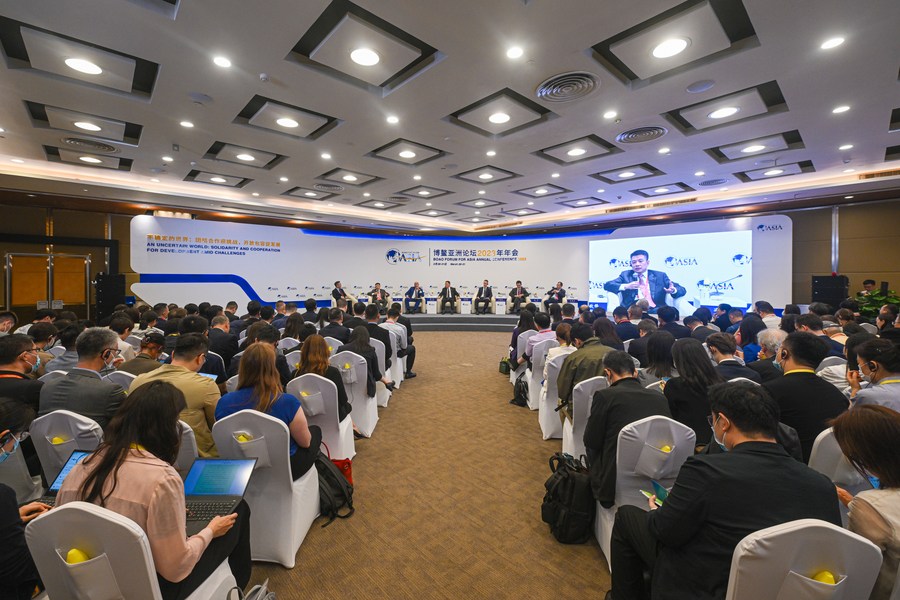
A panel discussion themed on "New Landscape of Industrial and Supply Chain" is held during the Boao Forum for Asia (BFA) Annual Conference 2023 in Boao, south China's Hainan Province, March 28, 2023. (Xinhua/Pu Xiaoxu)
The IMF warned in the January report that countries should carefully weigh the costs, at home and abroad, of national security measures on trade or investment, given the economic costs of fragmentation are building up on a global scale.
The longer-term cost of trade fragmentation alone could range from 0.2 percent of global output in a limited fragmentation scenario to almost 7 percent in a severe scenario -- roughly equivalent to the combined annual output of Germany and Japan, according to the report titled Geoeconomic Fragmentation and the Future of Multilateralism.
The Asia-Pacific should be a "stage for win-win cooperation rather than a chessboard for geopolitical contest," Chinese Foreign Minister Qin Gang told a press conference during this year's "two sessions."
Regional countries should practice real multilateralism and forge an open regional economy to jointly build a better Asia-Pacific homeland. Real multilateralism is dedicated to solving common problems and boosting common interests, not targeting any party or excluding anyone, but being open and inclusive.
Then how can policymakers navigate this time of uncertainty? Just like IMF Managing Director Kristalina Georgieva said during the opening ceremony of the BFA, "through cooperation and solidarity, the twin beacons of light we can rely on to guide us through the challenges that lie ahead."
Facing the complex and grim international situation, Asian countries should keep their faith and forge forward by adhering to a UN-based international order and a WTO-centered global trade system, rather than being cajoled into a side-taking dilemma. The huge, sustainable dividends of regional integration and economic globalization should not be squandered. ■

